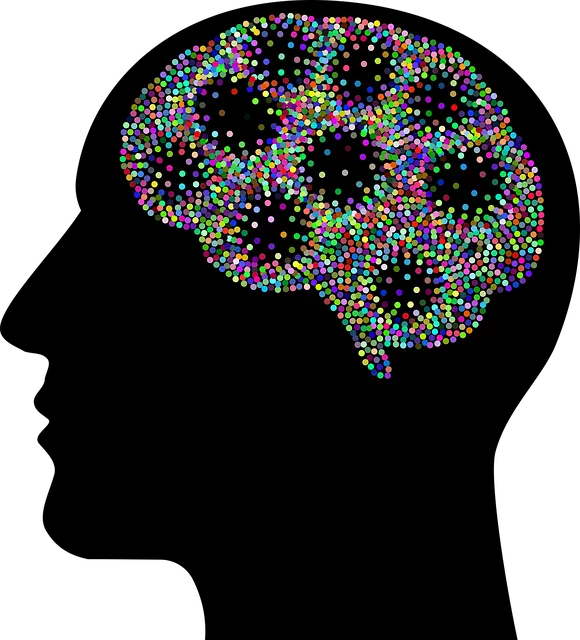The Kaiser Permanente Mental Health Access Center in Louisville leads the way with comprehensive Crisis Intervention Team (CIT) training programs, empowering healthcare providers, law enforcement, and community members with skills to handle mental health crises effectively. Their initiatives include Stress Management Workshops, Cultural Competency Training, and a Community Outreach Program that bridges healthcare services to at-risk populations. These programs, inspired by Kaiser Permanente Mental Health Access Center Louisville, combine theoretical knowledge with practical skills, ensuring trainees are prepared to support diverse populations in critical situations, thereby transforming mental health support and fostering empathy within communities.
“Crisis Intervention Team (CIT) training programs are transforming mental healthcare, especially at progressive organizations like Kaiser Permanente’s Mental Health Access Center in Louisville. This article delves into the essential role of CIT programs in equipping frontline staff to handle crises effectively. We explore key components of successful training, highlighting its profound impact on enhancing mental health support within healthcare settings. By examining the Kaiser Permanente Louisville model, we offer insights into how these programs are revolutionizing patient care.”
- Understanding Crisis Intervention Team (CIT) Programs: A Focus on Kaiser Permanente Mental Health Access Center in Louisville
- Key Components of Effective CIT Training
- Benefits and Impact of CIT Programs in Enhancing Mental Health Support
Understanding Crisis Intervention Team (CIT) Programs: A Focus on Kaiser Permanente Mental Health Access Center in Louisville

The Kaiser Permanente Mental Health Access Center in Louisville has been at the forefront of implementing effective Crisis Intervention Team (CIT) training programs. These programs are designed to equip healthcare providers, law enforcement officers, and community members with the skills needed to respond to mental health crises. By fostering better understanding and cultural competency among healthcare providers, the center aims to improve access to care for individuals experiencing psychiatric emergencies.
Through comprehensive CIT training, the center offers Stress Management Workshops that teach participants techniques for de-escalating tense situations. Additionally, they facilitate Healthcare Provider Cultural Competency Training, ensuring professionals are prepared to serve diverse communities with varied cultural backgrounds and mental health needs. The Center’s Community Outreach Program Implementation plays a crucial role in building bridges between healthcare services and at-risk populations, thereby enhancing overall crisis intervention capabilities in Louisville.
Key Components of Effective CIT Training

Effective crisis intervention team (CIT) training programs are multifaceted and comprehensive, aiming to equip participants with the skills to manage and de-escalate critical situations involving individuals experiencing mental health crises. A key component is providing in-depth mental health access center knowledge, such as those offered by the Kaiser Permanente Louisville Mental Health Access Center. This includes understanding various mental health disorders, recognizing triggers, and familiarizing trainees with available resources and support systems.
Additionally, these training programs emphasize practical skills like active listening, communication techniques, and de-escalation strategies tailored to diverse populations. Incorporating mental wellness coaching programs development elements allows for role-playing scenarios and mock crises, enabling trainees to apply their knowledge in realistic settings. Furthermore, integrating mental wellness podcast series production and journaling exercise guidance can enhance learning by offering diverse perspectives and promoting self-reflection among team members.
Benefits and Impact of CIT Programs in Enhancing Mental Health Support

Crisis intervention team (CIT) training programs have emerged as a powerful tool in enhancing mental health support, particularly in communities where access to specialized care is limited. These programs equip laypeople, often from diverse backgrounds, with the skills to recognize and respond effectively during a crisis, potentially saving lives. By fostering a culture of empathy and understanding, CIT initiatives bridge the gap in mental healthcare, ensuring that individuals facing psychological distress receive timely assistance.
The impact of these training programs is profound, as they not only empower community members but also improve outcomes for those experiencing mental health crises. The Kaiser Permanente Mental Health Access Center Louisville, for instance, has been at the forefront of promoting CIT training, contributing to a more responsive and inclusive mental wellness ecosystem. This approach aligns with the Mental Wellness Podcast Series Production and Self-Care Routine Development for Better Mental Health initiatives, emphasizing the importance of community involvement in fostering holistic mental health support. Through the teachings of Mind Over Matter Principles, participants learn to prioritize their own well-being while assisting others, creating a supportive network that benefits both individuals and society as a whole.
Crisis Intervention Team (CIT) programs, such as those implemented at the Kaiser Permanente Mental Health Access Center in Louisville, play a pivotal role in enhancing mental health support within communities. By equipping frontline healthcare professionals and volunteers with specialized training, CIT initiatives ensure swift and effective interventions during crises. The key components of successful CIT training, highlighted in this article, include cultural competency, de-escalation techniques, and evidence-based practices. These programs not only benefit individuals facing mental health challenges but also foster a more supportive and resilient community environment, ultimately reducing the impact of crises and promoting long-term well-being for all residents of Louisville and beyond.






